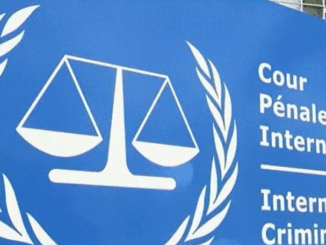
The International Criminal Court (ICC) cannot make “coercive actions” related to its ongoing investigation into former President Rodrigo Duterte’s war on drugs as the Philippines is no longer a party to the treaty that created the tribunal, according the Department of Justice (DOJ) said.
At a news forum on Saturday, DOJ Undersecretary Raul Vasquez said that while representatives of ICC can come into the country, the international tribunal cannot do certain actions such as arresting or issuing subpoenas against those involved in the drug war probe.
“Anybody, any foreigner can come here but as to whether they can do certain coercive actions, that cannot be done,” Vasquez said, adding that “once they do that they would have to face the consequences of being dealt with by the law enforcement agencies.”
“Ano ‘yung mga coercive actions? Mag-aresto sila ICC? Hindi puwede. That would be a serious affront to our independence and sovereignty. Magpadala ng subpoena? Hindi rin sila puwede dahil hindi na nga tayo saklaw, eh,” he said.
(What are those coercive actions? Can the ICC make an arrest? They cannot. That would be a serious affront to our independence and sovereignty. Issue a subpoena? They’re also not allowed because we are no longer under their jurisdiction.)
The Philippines, under then-President Duterte, withdrew from the Rome Statute, the treaty that established the ICC, in 2019 after the tribunal began a probe into his administration’s drug war.
Vasquez made the pronouncement after Justice Secretary Jesus Crispin Remulla said that the Philippines would not block the International Criminal Police Organization (Interpol) should it be tapped to implement the ICC’s possible arrest order against the personalities involved in the drug war.
Remulla, however, said that the government would still “study the possibilities or the implications of dealing with the Interpol on this matter.”
Vasquez, likewise, said that the Interpol implementing the ICC’s arrest order in the Philippines “is a very fertile source of discussion.”
The DOJ also clarified that the ICC and Interpol are two separate bodies.
Should the Interpol implement an arrest order in the Philippines, Vasquez said this would still undergo a process.
“Ang sistema ay magre-request lang ng assistance ‘yung mga law enforcement para ipatupad ‘yung WOA (warrant of arrest) na in-issue ng mga judicial authorities ng requesting country,” he said.
(The system in place is that law enforcement units request assistance in enforcing a WOA which was issued by judicial authorities of the requesting country.)
“Now, kapag nag-request ‘yung requesting party or country sa isang requested party or country ay ipapatupad ‘yan, ipapadaan mo sa tamang proseso,” he added.
(Now, if a party or country requested their counterparts to enforce that, this would undergo the proper process.)
Remulla earlier confirmed that the Philippine government received a request from the ICC to help it in interviewing “five persons.”
The Justice chief also maintained that the Philippines has no obligation to cooperate with the ICC because the country has withdrawn from the tribunal.
When asked if the Philippine government formally denied the ICC’s request to help, Remulla reiterated that the government only took “note” of it. — VDV, GMA Integrated News





Be the first to comment